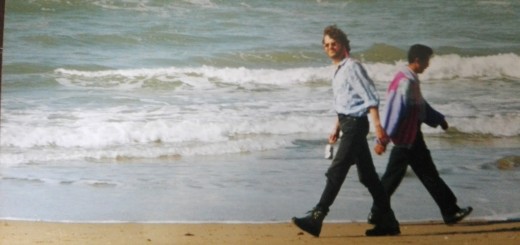Gallup poll: A lot of good news and some bad news as well
The Gallup World Poll continually surveys citizens in more than 140 countries which (they claim) represents 95% of the world’s adult population. A new report has been released:Who Speaks for Islam? What a Billion Muslims Really Think This book is the product of the Gallup World Poll’s multiyear research study. Gallup posed questions that are on the minds of millions: Is Islam to blame for terrorism? Why is there so much anti-Americanism in the Muslim world? Who are the extremists? Where are the moderates? What do Muslim women really want?
On the Immanent Frame we can read a piece by John Esposito, one of the writers of the report. They do not only give a nice impression of the most important conclusions, but also of the research method and criteria and definitions they used:
How widespread is political radicalism?
The key question asked to demarcate moderates from the politically radicalized was whether the 9/11 attacks were completely justified and whether they have an unfavorable or favorable view of the United States. The vast majority, moderates, said the 9/11 attacks were unjustified. A significant minority, politically radicalized and thus potential supporters of extremism – 7% – said the attacks were completely justified and view the United States unfavorably. Identification as “politically radicalized” does not mean they commit acts of violence but that they are a potential source for recruitment or support for terrorist groups.
Defying the conventional wisdom, the politically radicalized are no more religious than moderates and on average more educated and affluent than moderates. Larger percentages of politically radicalized than moderates respond that they are more satisfied with their financial situation, standard of living, and quality of life, with 64% of the politically radicalized vs. 55 % of moderates believing their standard of living is getting better. They are also, on average, more optimistic about their personal future than moderates, more optimistic about their own lives. However, the politically radicalized are more concerned and pessimistic about world affairs and international politics regarding issues like U.S. hegemony, invasion, and dependency. Responding to an open-ended question, politically radicalized frequently cite “occupation/U.S. domination” as their biggest fear, while moderates most often mention economic problems.
[…]
The good news is that 9 out of 10 Muslims are moderates, another piece of good news for those optimistic about coexistence. However, if the 7 percent (91 million) of 1.3 billion Muslims today worldwide are politically radicalized and they continue to feel politically dominated, occupied and disrespected, the West’s opportunity to address these drivers of extremism will be as great as the challenge of succeeding.


